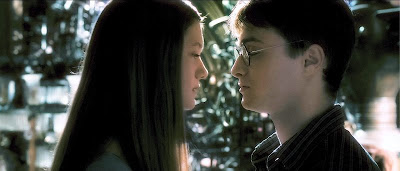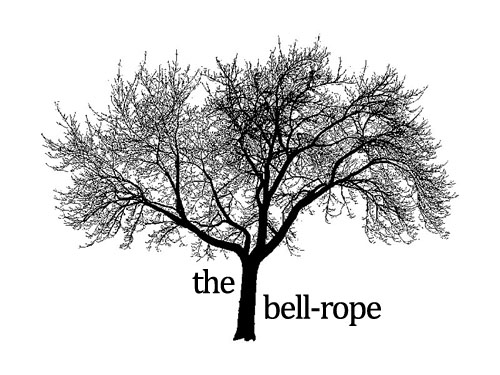It must be hard to follow Alfonso Cuaron, I kept thinking to myself. That man understood. In 6, Harry looks positively astounded as Dumbledore cleans up Slughorn's house with a flick of his wand - really? After six years? You're still bowled over by a clean-up charm?
Compare with Azkaban, which has the most subtle, unfussy touches of magic, sometimes presented in such banal fashion that you catch them only on a second viewing. I remember noticing, as I watched the movie a second time, that the barman in the Leaky Cauldron waves his hand at the chairs and doesn't even pay heed as they raise themselves up and tuck themselves neatly in. It's an astounding piece of CGI that isn't given a second thought. Magic, of course, is commonplace for those on-screen, and that is what makes it so special for us, that something so alien to us could be so boring in their world. By contrast, Yates is like a kid showing off his lunch Twinkies, making sure the camera zooms in on every bit of lame magic and every visual gag, so that what might have been charming or whimsical if left at the periphery becomes overburdened and even a little embarrassing.
My sense is also that the actors don't feel quite as comfortable working with Yates as they did with any of the previous directors. There are so many scenes dependent on dialog that fall utterly flat; scenes that should end with a rise, as with a good punchline, instead feel horribly dead, end with a leaden awkwardness. Yet there are some really wonderful exceptions, such as all the moments having to do with the Hermione-Ron-Cormac love triangle: watch Hermione as she picks up the love potion in Slughorn's class, looks at Cormac, and puts the bottle back. I don't think she's ever acted better.
 And I must mention as well my favourite scene in the movie, which is not in the book. It's when Slughorn tells the story of the petal in the bowl of water that Lily gave him as a gift, which sank to the bottom and transformed into a tiny fish. "It was beautiful magic, wondrous magic," he says, his eyes lost in the past. The existence of this scene is what saves the movie from being dispensable; it gives us something of Slughorn and, more importantly, of Lily, that the books don't.
And I must mention as well my favourite scene in the movie, which is not in the book. It's when Slughorn tells the story of the petal in the bowl of water that Lily gave him as a gift, which sank to the bottom and transformed into a tiny fish. "It was beautiful magic, wondrous magic," he says, his eyes lost in the past. The existence of this scene is what saves the movie from being dispensable; it gives us something of Slughorn and, more importantly, of Lily, that the books don't.But why does there have to be so much garbage in there too? Like the movie Ginny, who is so over-sexed the character most similar to her on screen is Bellatrix Lestrange - and that's a problem. Yes, Ginny grows older and more confident, and a part of that is a bloom in sexuality, but there is also a component of character in the book, in which Ginny defends her actions to a jealous Ron and manages irony when she comes across the same snogging Lavender. In the movie the sex sprouts ahead and the character is left behind, so that she seems little more than a whore - or a "scarlet woman," as Molly would put it.
 But we could go on all night like this, exchanging checks and crosses. It all comes to down this question: why, when we already have read and loved the books, do we go to the movie? There are a lot of simplistic and snide answers to this, but I still think it's worth asking. What, exactly, are we looking for? The movie will never be as "authentic" as the book, so we are not looking for authenticity, which means that the movie should feel free to veer from the material and surprise us.
But we could go on all night like this, exchanging checks and crosses. It all comes to down this question: why, when we already have read and loved the books, do we go to the movie? There are a lot of simplistic and snide answers to this, but I still think it's worth asking. What, exactly, are we looking for? The movie will never be as "authentic" as the book, so we are not looking for authenticity, which means that the movie should feel free to veer from the material and surprise us.I think about some of the moments in the movies that have stuck with me - Slughorn's memory of Lily, the moment in 4 when Neville gathers his courage and steps forward, first to dance - these have given me emotional jolts that live alongside those I've gotten from reading the books. The greatest weakness of the last two movies has been their reliability, because their reliability has made them forgettable. What might, might give them reason to exist is what newness they have to offer us, what moment or shot that is expressed better than we could conceive of it ourselves. We should be looking for sensory experiences that amplify our experience of reading, that give texture and substance and sound to the solitary act of imagination.

No comments:
Post a Comment